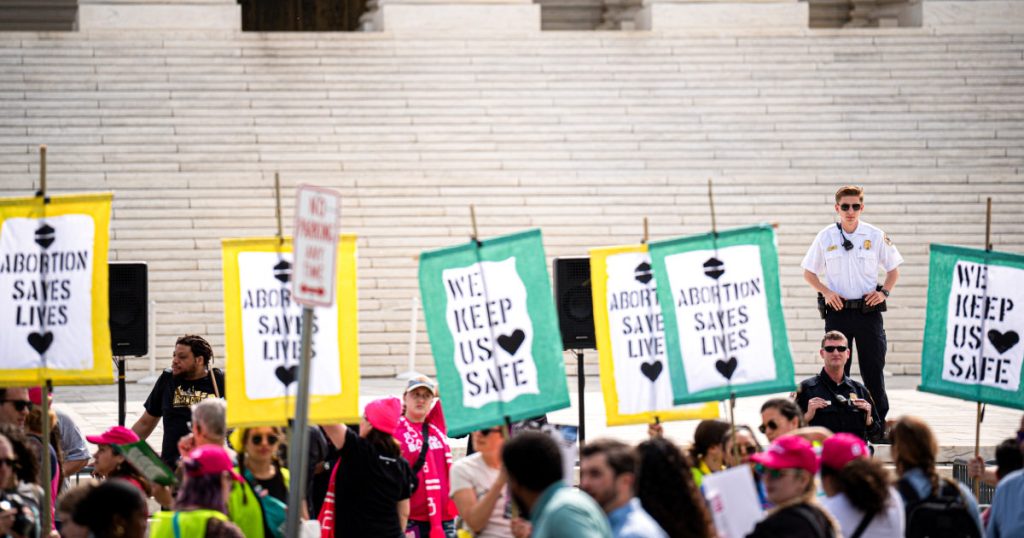Dr. Stacy Seyb, a maternal-fetal medicine specialist in Boise, Idaho, has had several patients in severe pregnancy complications who were forced to be airlifted out of the state due to the state’s abortion ban. One patient had her water break around 20 weeks, putting her at risk of infection, and doctors were forced to transfer her out of state as ending the pregnancy could be part of the standard of care. Idaho bans all abortions with limited exceptions, and the Supreme Court is now considering whether this violates a federal law that requires hospitals to offer emergency care to patients in crisis. Some justices seem split on the issue, with conservatives leaning towards the state’s argument that federal law should not supersede their own laws on health care.
St. Luke’s Health System, where Seyb works, filed an amicus brief in the case, noting that abortion may be essential to protect patients from harm and that the ban forces patients to endure risky out-of-state transfers. The Idaho Attorney General has stated that abortion will be allowed if the mother’s life is in jeopardy, but many pregnant patients have been airlifted out of the state for needed care since the Supreme Court lifted an injunction protecting doctors providing emergency care on Jan. 5. These out-of-state transfers can carry immense financial and emotional costs for patients, as the flights can exceed $10,000 and may not be covered by insurance.
One of the most common complications that require out-of-state transfers is when a patient’s water breaks in the first two trimesters of pregnancy, which can occur before fetal viability. Physicians for Human Rights, an organization advocating for abortion rights, filed an amicus brief in the Supreme Court case, citing instances of patients facing severe complications in Idaho being unable to receive timely treatment. Dr. Sarena Hayer, a physician in Oregon, described receiving a gravely ill patient from Idaho who was 18 weeks pregnant with twins and suffered severe complications. The patient ultimately lost both fetuses after being airlifted to Oregon, where she would have been offered a termination almost immediately if she had started her care there.
Doctors in Idaho have also shared stories of patients facing severe complications who were unable to leave the state to seek treatment. Dr. Michael Schneider, a maternal-fetal medicine specialist in Boise, recalled a patient whose water broke around 20 weeks but declined to be airlifted out of state due to concerns about leaving her family and expenses. She went into labor, but her fetus did not survive. Dr. Schneider emphasized that vulnerabilities for pregnant women are acute in such situations, drawing on his experience in medicine over the years.


